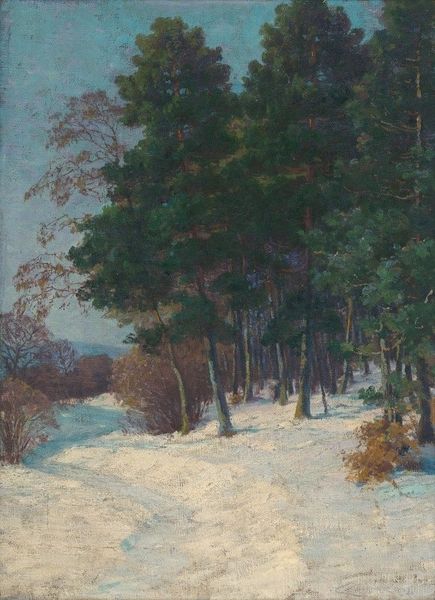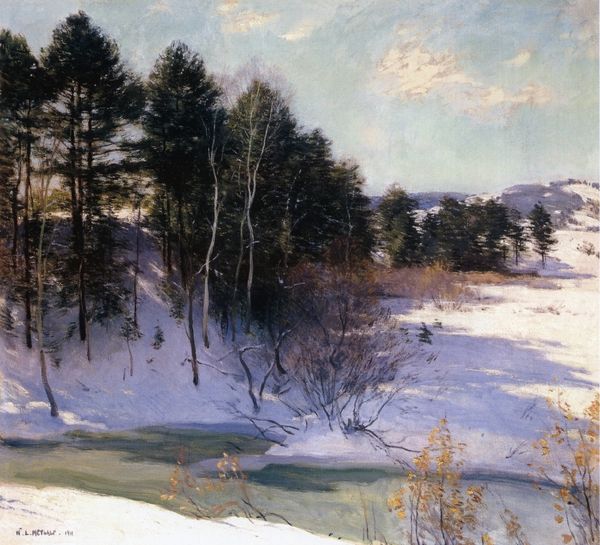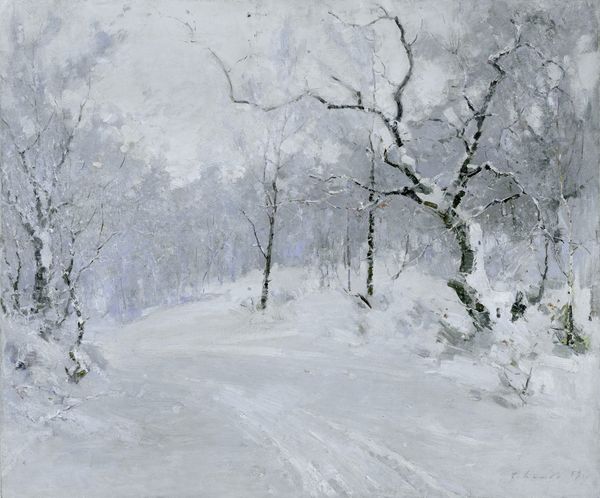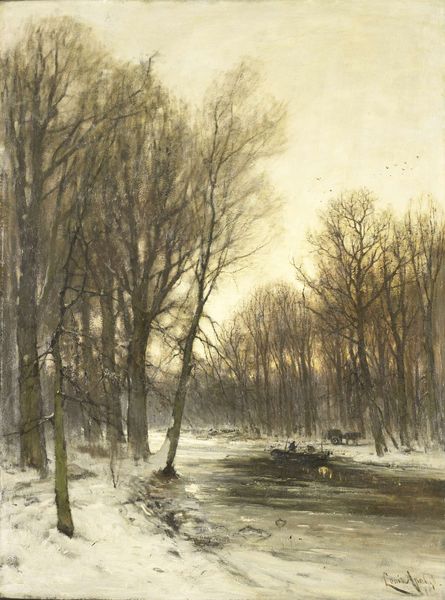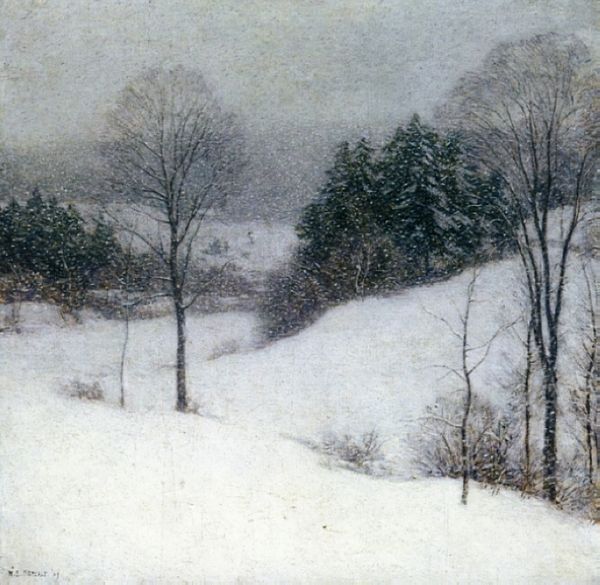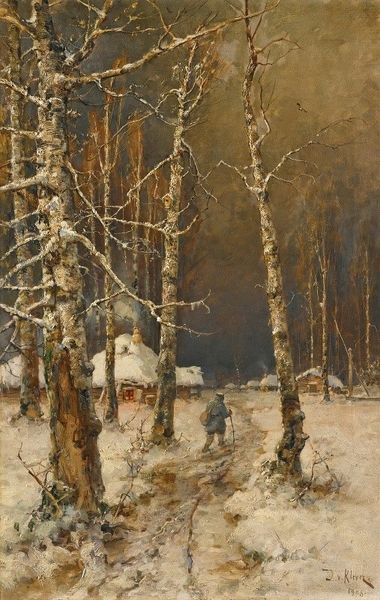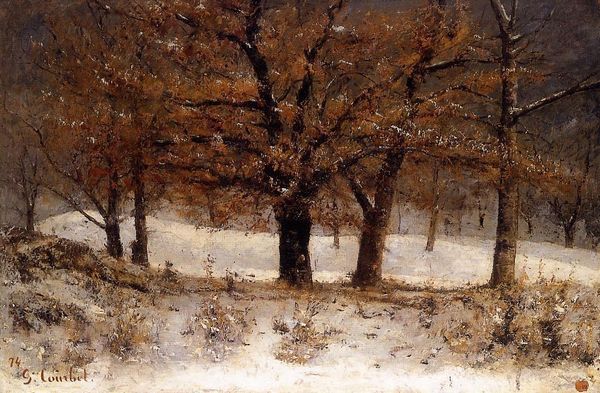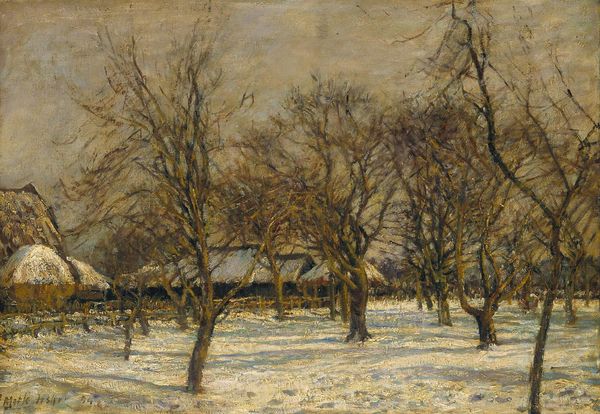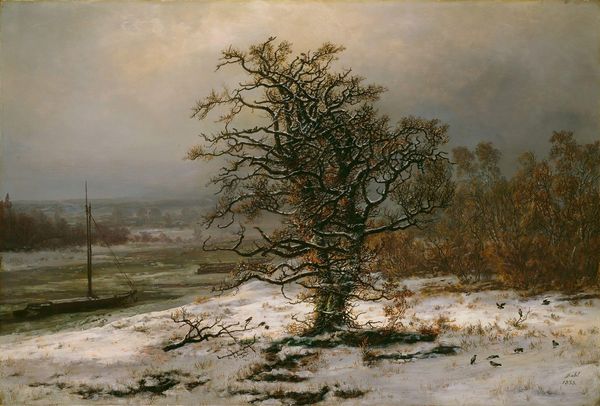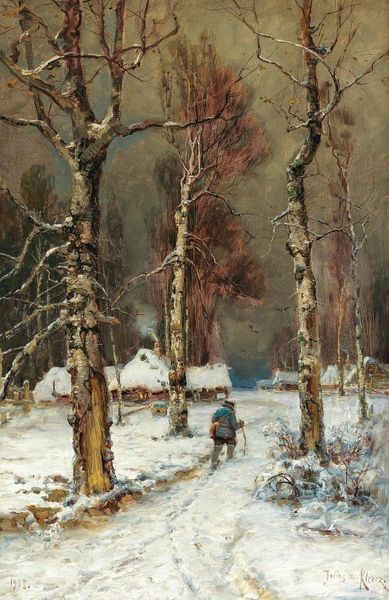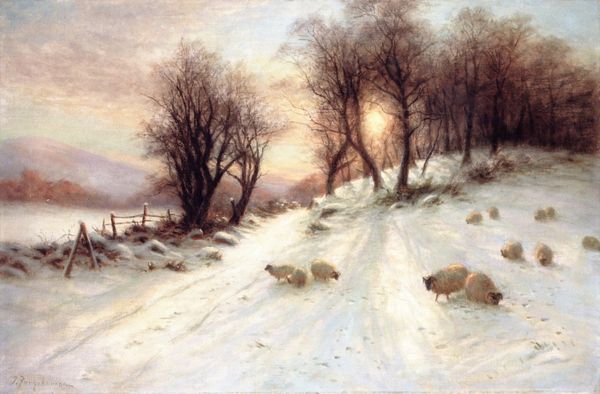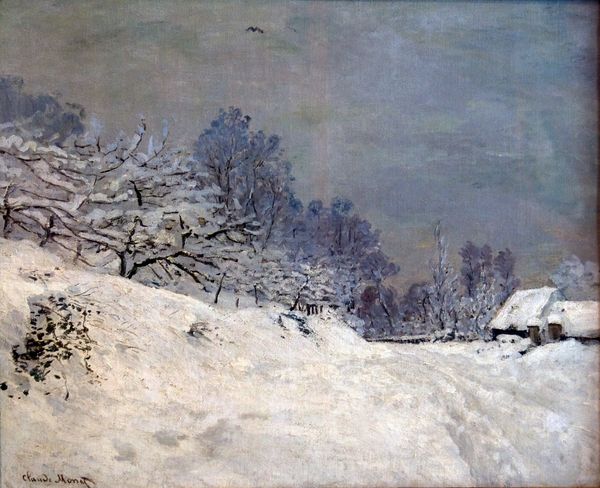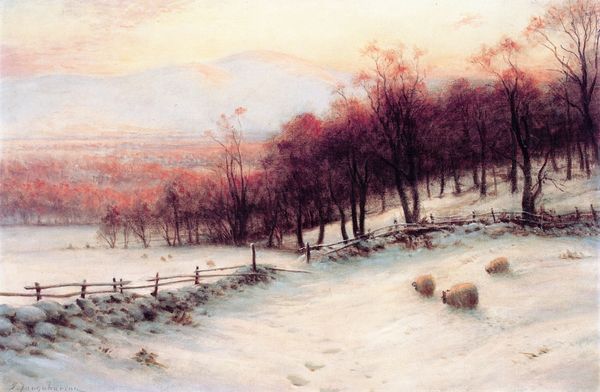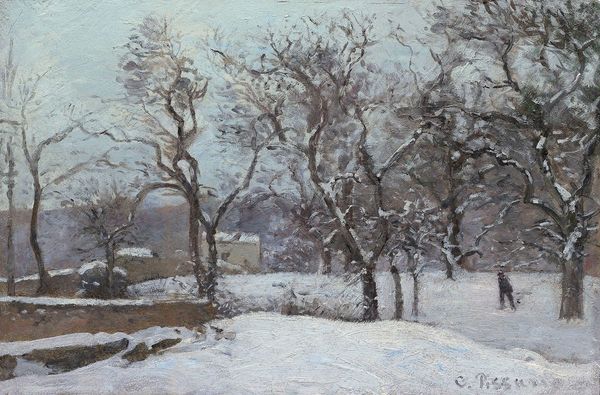
oil-paint
snow
oil-paint
landscape
oil painting
romanticism
realism
Copyright: Public Domain: Artvee
Editor: We’re looking at Gustave Courbet’s “Neige,” or “Snow,” a landscape painting rendered in oil paint. There isn’t an exact date, but it is stunning! I’m struck by the subdued palette; it makes the whole scene feel very somber. What's your take? Curator: What I find interesting is the context of its production. Courbet, aligning himself with Realism, deliberately chose subjects from everyday life and landscapes. He wanted to depict the world as it truly was, without idealization. He challenges the then-dominant academic painting which favoured historical or mythological scenes. Look how Courbet handles the snow – less about Romantic sublimity, more about tangible, gritty reality. How do you think this affected his public reception? Editor: I imagine some found it too…plain? Without the drama of a history painting. It is an unconventional theme. Curator: Precisely. And remember, this was a period of significant social upheaval, including the 1848 revolution. The rise of Realism in art mirrors broader social movements emphasizing the lives of ordinary people. "Neige" in that sense isn't just a snowy landscape; it's a statement about what art is *for*. Do you see its impact? Editor: Definitely. It’s interesting to think about it in that socio-political frame. The act of painting the ordinary is a challenge in itself. So it became about accessibility, rather than storytelling? Curator: Absolutely! It's about redefining the "worthy" subject for art, and who gets to decide what that is. Considering museums, salons, and art critics... the control they exert over taste. Do you find that perspective helpful in analyzing "Neige?" Editor: It definitely is, viewing art in the context of society. Now I see this muted landscape as a powerful voice against an academic system. Thank you! Curator: It's crucial to analyze not just the art object itself, but its relationship with the society and power structures around it. We've both expanded our understandings of this powerful work of art.
Comments
No comments
Be the first to comment and join the conversation on the ultimate creative platform.
